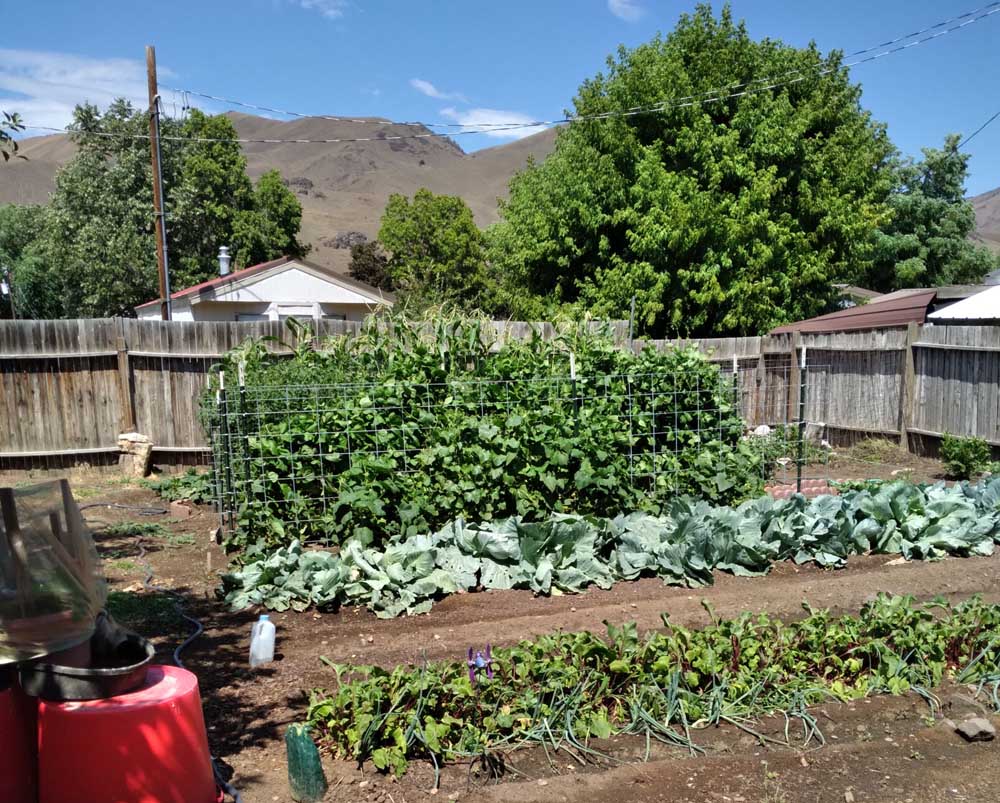West Nile Update: Huntington woman speaks out about husband’s fatal infection
Published 12:00 pm Tuesday, February 6, 2024

- Betty Thomas' garden is one of the projects she's hopeful to resume this year, especially after her husband's Jerry's sudden passing last August, one of the pastimes they enjoyed together.
HUNTINGTON — Last summer the Herald covered a singular case of West Nile infection occurring in Huntington, on the southeastern edge of Baker county.
Local resident Jerry Thomas, 84, required a sudden hospitalization last August after several days of mild symptoms and a misdiagnosis.
Further details were unavailable at the time, though batches of West Nile had been confirmed locally in the 2023 mosquito larva season.
Ultimately, Thomas’ condition did not improve, due in part to his weakened immunities at the time. Gathered to offer their goodbyes, the Thomas family chose to end his life support on August 23, some two weeks later.
Jerry had always been active according to lifetime spouse of 61 years, Betty, who visited the Herald to speak on her experience.
The pair had lived in Huntington for years in some comfort, and enjoyed peaceful recreation together such as fishing and gardening just outside their home.
However after his most recent treatments for non-Hodgkin’s lymphoma, Betty says that Jerry was still recuperating, and even anticipating surgery to improve his knee mobility when what seemed like a mild illness began to take hold.
“We took him to Fruitland, to St. Lukes there, he was just shaking then, that was it.” she said, and initially the prognosis was good and they sent home with medication. “He was healthy and participating, always. So they let him drive home.”
“But in the middle of the night, it must have been about 4 o’clock, he got up. He told me he couldn’t feel his legs,” she said.
It prompted some immediate calls to neighbors for help, and an unexpected return drive to Fruitland. After checking through, he was quickly transferred out to Meridian, Idaho for more advanced care, roughly when his test results confirmed that he’d suffered an acute infection.
“The virus attacks the nervous system and shuts the body down, but it can’t shut the brain off though, one thing it can’t do anything with,” Betty said, who has become quite familiar with the symptoms of the virus.
“He was bitten by some badass mosquito with West Nile, they gave him 3 months to live,” she said. “I told them he wouldn’t survive that long.”
Jerry lost consciousness in the time his family could convene and travel to his bedside some days later, passing away surrounded by his loved ones.
“We turned his spirit loose,” Betty said, “he’s with his daughter now.”
Years earlier their daughter, Elizabeth Ann, passed away from complications with lung cancer, marking another major blow to the family.
Just prior to the bite Betty says they’d also visited Saint Alphonsus in Baker City, which had recently had larva samples test positive for the virus, and thinks it’s likely where Jerry contracted the infection.
Betty says that Jerry was a model neighbor, an excellent father and a Navy veteran. She says that his exposure to metal poisoning in his early service likely affected him with cancer later in life, which could have made almost any infection impossible to fight off.
They’d been married for 61 years.
With a burial fee paid by the government, she says they intend to honor his memory in Alaska, where they raised their family, with a scattering of his ashes at his favorite fishing site.
She says that the place holds fond memories for their family, where Jerry had once seen a Halibut so large that it almost dwarfed their own boat.
Following his passing, Betty says she’s found support through Jerry’s military and social security benefits, as well as the local Community Connections, who have have submitted nearly $1,000 towards her bills so she could get through the winter.
Despite everything Betty says she’s still making time for family and things she loves, and into the summer she’ll be raising a garden as she has every year since she moved to Huntington, though she intends to scale it back for her own comfort.
Into the summer the local Vector Control office will be actively spraying and testing larva as seasonal warmth returns.
Those who might feel shaking, dizziness, chills and other symptoms in those seasons and regions should seek medical support for what can turn into a dangerous infection, especially for the very young and the elderly.






